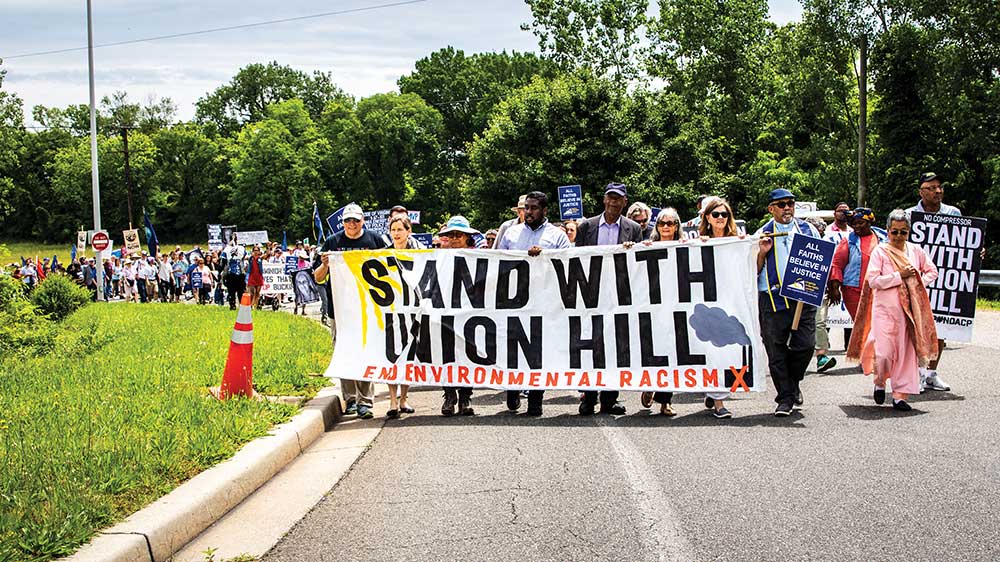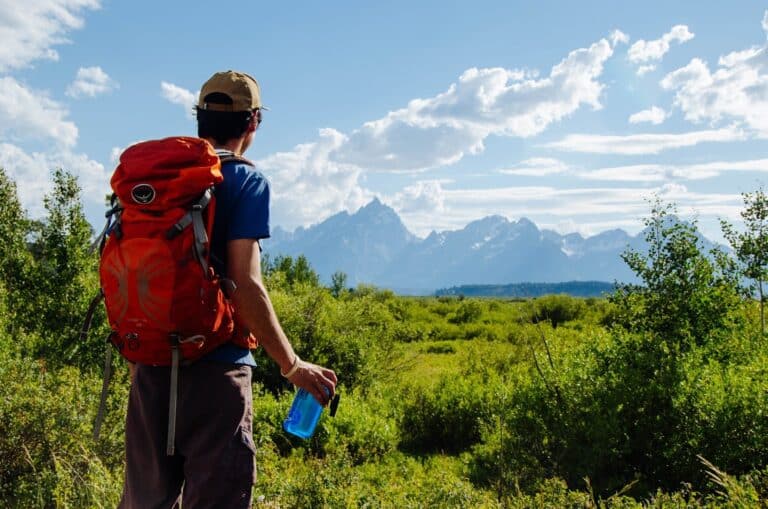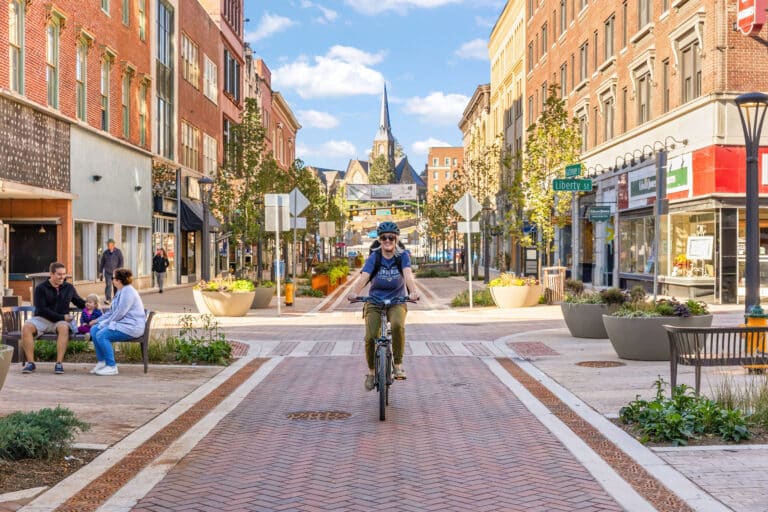Union Hill residents fight environmental racism in location of pipeline compressor station
In May of 1968, voices demanding economic justice and civil rights could be heard as protestors marched through Richmond for Martin Luther King, Jr.’s historic Poor People’s Campaign. 51 years later, “We are one!” could be heard on that very same route across the Robert E. Lee Bridge.
On May 17, 2019, members of the Union Hill community along with hundreds of other concerned citizens came together at Canoe Run Park for the End Environmental Racism Now march. The march is for environmental justice in Union Hill, a historic black community in Buckingham County targeted for a massive compressor station for the Atlantic Coast Pipeline. The march aims to stop the compressor station and all other fracked-gas infrastructure in Virginia.
The crowd created a sea of flags and signs reading “Stand with Union Hill, End Environmental Racism,” and “No Pipeline, No Toxic Fumes.” As they marched across the bridge, people chanted to a drum beat, “We don’t want your pipeline—no fracking way!”
One of those voices was of Richard Walker, a resident of Union Hill whose family is rooted deep in the land. His great great grandfather Taylor Harper was a freed slave back in the 1860s. Once freed, Harper continued to work for the slave master, with pay, and eventually bought land in Union Hill for $15 dollars. That land is where Walker and his family have resided ever since.
His land is now targeted by Dominion Energy for a compressor station and pipeline connectior. “This land has been in our family since 1885,” says Walker. “And we refuse to give it up.”
Due to arson in the county building back in the 1800s, all of the original records of property owners, slave owners, and residents of Union Hill have been destroyed.
“There are literally no birth certificates, death certificates, or marriage certificates for the families that live out in Union Hill,” says Walker. “We’re trying to put Union Hill back on the map, so it’s not being ignored.”
The history is not the only thing motivating these protestors to march against the compressor station. The pollution and environmental impact are impossible to ignore.
“Both pipeline projects are behind schedule, over budget, and can’t be built without hurting air quality and water quality,” says Jessica Sims, Community Outreach Coordinator for the Sierra Club Virginia. “There is no safe way that these pipelines can be built.”
Sims explained that even if construction is a few counties away, the impact goes beyond the site’s immediate location. Richmond will feel it, too, and it will affect the James River, which they plan to drill under.
“This is what every expert from every field has said about fracking infrastructure from the beginning,” says Billy Davies, Pipelines Community Outreach Coordinator for the Sierra Club. “They all agree that there is no safe way and no need to build these fracking projects. The only people served are those who are building it to seek profit.”
If the pipeline and compressor station are approved, Dominion has promised $5.1 million dollars to be put towards community support and public safety. Some residents see the potential relationship with Dominion as a positive for Union Hill.
“The options are a compressor station with benefits to the community or a compressor station and no benefits to the community,” Joyce Gooden, who lives about a mile and a half away from the proposed location and currently resides on top of the Transco pipeline, told CBS19 News. She claims not to have concerns of pollution affecting her health or her cattle’s health.
“We don’t have three-legged cows being born because we’re living on the pipeline,” Gooden said. “We don’t have four-eyed cows.”
Gooden sees Dominion as an incoming member of the community and wants to move forward and work with them. However, most residents of Union Hill see things differently. The protestors believe that building the compressor station in Union Hill is environmentally racist, dangerous to the community’s long-term health, and an attempt by a giant utility to steamroll a community.
“Dominion is trying to seek eminent domain, and think they can buy us off,” says Walker. “Our family has decided collectively that we refuse.”







